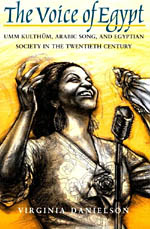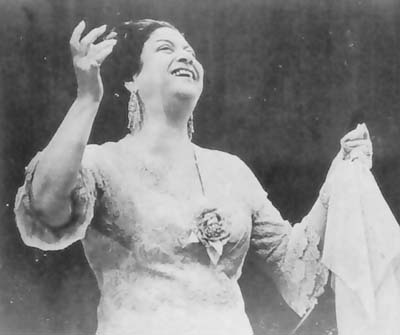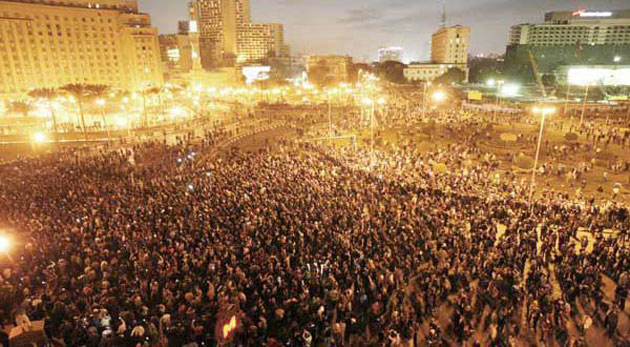The Voice of Egypt

It’s nearly impossible to turn away from the tumultuous events in Cairo, and to make sense of rights and freedoms on the line from an international vantage. We’ve been following the feeds at the Guardian and most recently reading PEN International’s statement, released this morning, and thinking about the March of Millions planned for Tuesday. In trying to stay present with the coverage and assessing where to begin to solidify our understanding of a nation’s culture and a movement for its people, we came across the music of Umm Kulthum, whose fallahah (peasant) perspective imbued her life and work, offering insight into the cultural and political studies that Egypt faced only a generation or two before.

Kulthum, the “voice of Egypt” (also “the Star of the East” and the “Nightingale of the Nile”), was one of the most celebrated performers of the twentieth-century Arab world. The idiom she created from local culture and traditions helped her to develop a populist musical practice that was heralded as a crowning example of a new, yet authentically Arab-Egyptian culture, during tumultuous changes mid-century.
Perhaps most pressingly, Kulthum’s music and public persona helped to contribute to the artistic, societal, and political forces that surrounded her, the daughter of an Imam, lauded by Maria Callas and Charles de Gaulle, exiled and reinstated from the Egyptian musician’s guild following the rise of Gamal Abdel Nasser. Virginia Danielson’s The Voice of Egypt: Umm Kulthum, Arabic Song, and Egyptian Society in the Twentieth Century is the first English-language biography of this remarkable figure (see a website devoted to her life and work here), and a chronicle of societal shifts in this modern nation whose repercussions are still relevant and a part of events today.

With Egypt in mind—listen to Umm Kulthum singing “Enta Omri” below: